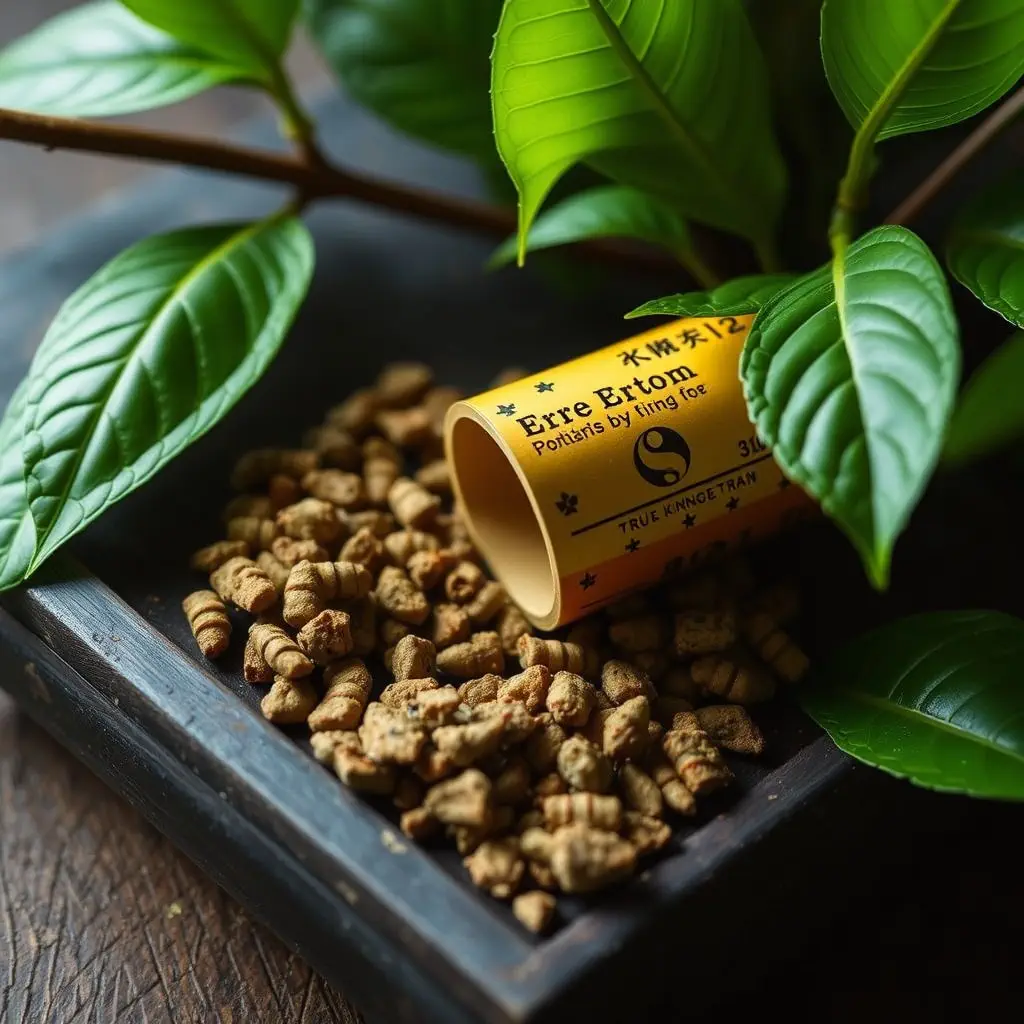The Lotus Blue Flower kratom strain, originating from Southeast Asia, is recognized for its potential to help manage anxiety and stress, with a unique alkaloid profile that may influence brain receptors affecting mood. Users often report experiencing a calming sense of tranquility and improved emotional balance after ingestion, attributing these effects to the strain's influence on neurotransmitters associated with mood regulation. Despite its promising effects, it is crucial to approach its use responsibly due to variable legal statuses and potential side effects. Users should consult healthcare professionals for personalized dosage advice and ensure they source high-quality, ethically harvested Lotus Blue Flower kratom to maintain safety and efficacy. Additionally, combining the strain with wellness practices like meditation, yoga, or deep-breathing can enhance its benefits. A holistic approach that includes a balanced diet, regular exercise, and adequate sleep further supports stress management when incorporating the Lotus Blue Flower kratom into one's routine. Users should start with a low dose to assess their individual response and be aware of the wide range of sensitivities to kratom. Safety and well-being are paramount when considering this natural remedy as part of a comprehensive stress reduction strategy.
Exploring the therapeutic landscape of natural remedies, this article sheds light on kratom’s potential in mitigating stress and anxiety. Known botanically as the lotus blue flower, kratom has garnered attention for its purported anxiety-relieving properties. We delve into the scientifically informed benefits of kratom supplementation, offering insights into how it may serve as a valuable tool in stress management. Readers will discover practical guidelines and best practices for incorporating kratom safely into their wellness routines, ensuring an informed approach to harnessing its effects. Join us as we navigate the complexities of this intriguing plant and its promising role in promoting mental tranquility.
- Unlocking the Anxiety-Relieving Potential of Kratom: A Glimpse into Its Role in Stress Management
- The Lotus Blue Flower: Exploring the Botanical Origins and Kratom's Impact on Mental Wellbeing
- Safe Integration of Kratom Supplements for Stress Reduction: Guidelines and Best Practices
Unlocking the Anxiety-Relieving Potential of Kratom: A Glimpse into Its Role in Stress Management

Kratom, a plant native to Southeast Asia and known for its leaves with varying alkaloid profiles, has garnered attention in natural wellness circles for its potential anxiety-relieving properties. The lotus blue flower, a specific strain of kratom, is often highlighted for its calming effects, which may be particularly beneficial for individuals seeking relief from stress and anxiety. Scientific research suggests that the alkaloids present in kratom leaves, such as mitragynine and 7-hydroxymitragynine, interact with the brain’s receptors to modulate mood, potentially leading to a reduction in symptoms associated with stress and anxiety. Users report feelings of tranquility and a sense of emotional balance after consuming the lotus blue flower, which could indicate its utility as an adjunct to conventional stress management practices.
When considering the role of kratom in stress management, it’s crucial to approach its use with caution. The regulatory status of kratom varies by region, and potential side effects and interactions with other substances should be carefully considered. Prospective users are advised to consult healthcare professionals before integrating kratom into their wellness regimen, ensuring safe and informed use. The lotus blue flower strain, in particular, is lauded for its fine balance of stimulating and sedative properties, which may help individuals navigate the complex emotional landscape of stress and anxiety without the risk of overstimulation or excessive sedation often associated with other anxiolytics. As research continues to evolve, the potential of kratom, including the lotus blue flower strain, in holistic stress management practices becomes increasingly apparent.
The Lotus Blue Flower: Exploring the Botanical Origins and Kratom's Impact on Mental Wellbeing

The Lotus Blue Flower, a botanical variant of the Mitragyna speciosa plant, is renowned for its unique properties and historical significance. Native to the lush, verdant landscapes of Southeast Asia, this strain has been traditionally used in local folklore and healing practices. Known scientifically as kratom, the leaves of this plant contain alkaloids that interact with the body’s neural pathways, potentially offering relief from stress and anxiety. The Lotus Blue Flower kratom stands out due to its distinctive blue veins and is often sought after for its balance between energizing and calming effects. Users report a sense of tranquility and mental clarity when consuming this strain, which may be attributed to the specific alkaloid composition that influences neurotransmitter levels associated with mood regulation.
Incorporating Lotus Blue Flower kratom into one’s wellness regimen could serve as a complementary approach to managing stress and anxiety. It is important to approach such supplements with caution, adhering to recommended dosages and consulting healthcare professionals, especially given individual differences in response to natural substances. The impact of Lotus Blue Flower kratom on mental wellbeing is multifaceted; it may enhance focus, alleviate feelings of tension and worry, and contribute to an overall sense of emotional equilibrium. As with any supplement, consistent quality and proper handling are crucial to ensure safety and efficacy, making the sourcing of high-quality, ethically harvested kratom a critical aspect of its use for mental health support.
Safe Integration of Kratom Supplements for Stress Reduction: Guidelines and Best Practices

Including kratom supplements in your wellness regimen for stress reduction can be a considered approach, provided it’s done responsibly and with the right knowledge. The lotus blue flower, a specific strain of kratom, is often sought after for its potential relaxing effects. To safely integrate these supplements into your routine, it’s crucial to adhere to guidelines that prioritize your well-being. Begin by consulting healthcare professionals to ensure kratom is appropriate for your unique health profile and to determine an effective dosage. It’s also imperative to select high-quality kratom products from reputable sources to avoid contaminants or adulterated substances that could exacerbate stress or pose health risks.
When integrating lotus blue flower kratom into your daily life, start with a low dose to gauge its effect on your body and mind. Monitor your response over time, as individual sensitivity to kratom can vary greatly. Additionally, establish clear boundaries for use; consistency is key, but moderation is essential. To enhance the stress-relieving benefits of kratom, consider incorporating it alongside complementary practices such as meditation, yoga, or deep-breathing exercises. This holistic approach can magnify the calming effects and contribute to a more balanced mental state. Remember to maintain a balanced diet, engage in regular physical activity, and ensure adequate sleep, as these factors synergistically support overall stress management. With careful attention to dosage, product quality, and personal health considerations, kratom supplements like the lotus blue flower can be a valuable addition to your stress reduction strategy.
Consistent engagement with kratom supplements, as delineated in the article, offers a promising approach for individuals seeking natural remedies to manage stress and alleviate anxiety. The lotus blue flower, a key botanical component of kratom, is shown to play a significant role in its efficacy for mental wellbeing. Adhering to safe integration practices ensures that this ancient remedy can be effectively utilized without compromising health. It is clear that further research is warranted to fully understand the potential benefits and optimal usage of kratom supplements within a regulated framework. For those interested in exploring kratom as a complementary measure, it is advisable to consult with healthcare professionals to navigate its use responsibly.






